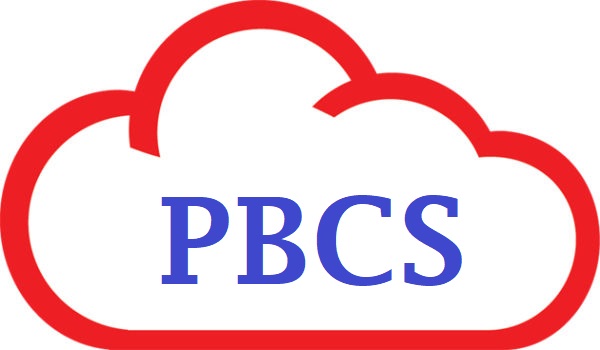Oracle Planning and Budgeting Cloud Service (PBCS): Transforming Financial Management
In today’s dynamic business landscape, efficient financial planning and budgeting are critical for the success of any organization. The emergence of cloud-based solutions has revolutionized the way companies manage their financial processes. One such powerful tool is the Oracle Planning and Budgeting Cloud Service (PBCS), a comprehensive platform that enables businesses to streamline their budgeting, planning, and forecasting activities. In this article, we will delve into the world of Oracle PBCS, exploring its features, benefits, and impact on modern financial management.
Understanding Oracle PBCS:
Oracle PBCS is a cloud-based financial planning and budgeting solution offered by Oracle, a global leader in enterprise software. It empowers organizations to replace traditional, manual spreadsheet-based approaches with an integrated, collaborative, and dynamic planning environment. Whether an organization is small, medium-sized, or large, PBCS caters to their diverse planning needs, ensuring accuracy, flexibility, and efficiency.
Features and Functionalities:
- Centralized Platform: PBCS provides a centralized platform for financial teams to collaborate and work together on budgeting, forecasting, and planning. This eliminates the challenges associated with managing multiple versions of spreadsheets and emails, ensuring data integrity and consistency.
- Real-time Collaboration: The cloud-based nature of PBCS enables real-time collaboration among team members, regardless of their geographical location. This fosters better communication, reduces delays, and enhances the overall planning process.
- Scenario Modeling: Organizations often need to assess various business scenarios before finalizing budgets or plans. PBCS allows users to create and evaluate different scenarios, helping them make informed decisions based on potential outcomes.
- Data Integration: PBCS seamlessly integrates with various data sources, including ERP systems, spreadsheets, and databases. This integration ensures that planners have access to the most up-to-date and accurate information for their financial processes.
- Built-in Intelligence: The platform incorporates advanced algorithms and predictive analytics to assist in forecasting and trend analysis. This intelligent feature aids in generating more accurate predictions and identifying potential risks and opportunities.
- Customization: PBCS offers a high degree of customization, allowing organizations to tailor the platform to their unique planning processes and business requirements. This adaptability ensures that the solution aligns with the company’s specific needs.
- Security and Compliance: Oracle places a strong emphasis on data security and compliance. PBCS employs robust security measures, encryption protocols, and access controls to safeguard sensitive financial information.
Benefits of Oracle PBCS:
- Enhanced Efficiency: One of the most significant advantages of PBCS is the drastic improvement in efficiency. Automation of manual tasks, elimination of spreadsheet errors, and real-time updates accelerate the entire planning and budgeting process.
- Accurate Forecasts: With the integration of predictive analytics, organizations can achieve more accurate forecasts. This empowers decision-makers to proactively respond to market changes and allocate resources effectively.
- Collaborative Planning: PBCS promotes collaboration among different departments and teams involved in the planning process. This ensures that all stakeholders are on the same page and aligned with the company’s goals.
- Reduced Risk: The scenario modeling feature allows organizations to assess potential risks and their impact on financial performance. This proactive approach helps in developing mitigation strategies and minimizing the adverse effects of uncertainties.
- Cost Savings: By eliminating the need for extensive manual spreadsheet work and reducing errors, PBCS ultimately leads to cost savings. Organizations can allocate resources more efficiently and avoid the expenses associated with correcting mistakes.
- Faster Decision-making: With real-time data and insights readily available, decision-makers can make informed choices quickly. This agility is crucial in today’s fast-paced business environment.
- Scalability: Whether a company is experiencing growth or changes in its operations, PBCS can scale to accommodate evolving planning requirements. This scalability ensures that the solution remains relevant as the organization expands.
Impact on Modern Financial Management:
Oracle PBCS has transformed the landscape of financial management by ushering in a new era of digitization, integration, and intelligence. The traditional methods of budgeting and planning, which often involved time-consuming manual processes and limited collaboration, are being replaced by dynamic cloud-based solutions like PBCS.
The platform’s ability to provide real-time visibility into financial data, facilitate collaboration among teams, and enable scenario analysis has empowered organizations to make smarter decisions. The shift from static, one-time budgeting to continuous planning allows companies to adapt to market fluctuations, industry trends, and internal changes more effectively.
Furthermore, the predictive analytics integrated into PBCS empowers businesses to move beyond historical data analysis and venture into proactive forecasting. This shift from reactive to proactive financial management enables companies to anticipate challenges, seize opportunities, and stay ahead of the competition.
